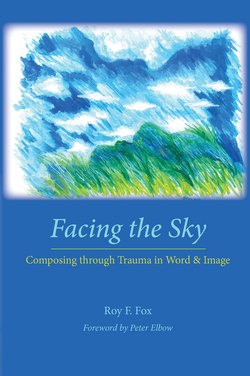Читать книгу Facing the Sky - Roy F. Fox - Страница 9
На сайте Литреса книга снята с продажи.
ОглавлениеForeword
I’m happy to recommend this book to a wide variety of readers. I find it important and useful—and I admire its strong humane prose style.
Writing for healing used to be a controversial idea. I remember a time, not so long after my 1973 Writing Without Teachers began gradually to be noticed, when a number of people in English and Composition accused me of wanting to “practice therapy without a license.” I would immediately deny the charge. “Oh no, I’m just trying to improve people’s writing.” Of course I was being disingenuous; of course I harbored the belief I knew many other teachers of writing shared, namely that private writing and exploratory expressive writing, even very personal writing, would help people write better, and indeed, be better.
In fact out of my own need, I “invented” freewriting for myself—before I’d heard about it from Ken Macrorie. In the late 1950s I’d felt subjectively tortured by an uppity Oxford tutor who made fun of my writing. (It didn’t help to learn that this was just how people act when they think they are at the best university in the world.) I was desperate and instinctively took to my typewriter to pour out my feelings nonstop about my pain and inability to write—all of this of course in writing. It gave me genuine relief. For centuries, really, many journal keepers have used writing in the same way.
I’m happy to say that now there is ample evidence to show that writing for healing—Writing through Trauma in Fox’s formulation—need no longer be controversial. Ironically, people in the academic fields of English and composition have often been slowest to accept this fact. One of Fox’s most useful chapters summarizes extensive research showing the benefits that come from writing out of pain—some of these benefits being physically and empirically measurable.
This book is a rich compendium of case studies. It’s full of extended examples of writing from a wide variety of people of various ages. Fox provides extensive commentary where he describes, ruminates, and puzzles about what the writer is doing, how the language is functioning, and how all this relates to healing. (By the way, one of his chapters explores drawing and other visual imagery that people can use to deal with their suffering.) His statement about his original goals is probably right (though I can’t vouch for knowing all the scholarship out there):
I could not locate anything like what I had in mind—hardly any studies that zoned in on people’s actual writing, thinking, and imagery. I also became convinced that the future will bring much more attention to addressing all types of trauma, some of which we have yet to “discover.”
Fox is both anthropologist and theorist. Reading his book gives us remarkable perspective—and in the end distance—on how writers have used symbolic systems to deal with pain. Yet all the while he is opening windows that cannot but lead us to experience some of the pain that his subjects write about.
Fox’s writing itself is powerful for its plain simplicity in treating what is often extreme. His writing reminds me of the pungent example from Truman’s journal where he wrestles bluntly with the concrete reality of having compromised his ideals and committed shady and even criminal acts—naming them—for the sake of goals he considered good. Fox admires Truman’s plain prose and I admire Fox’s. But it is pain, after all, that all these words are about, so that must be what led Fox to a rare rhetorical loftiness in his comment about the words of one of his subjects: “Such writing is very much like prayer, whether or not we believe in a God. This, we have to believe, is the highest, holiest use of language imaginable.”
How This Book Applies to Writing
Many readers of this book will be interested not just in the practice of writing from pain, but also in the practice of writing itself and the nature of the writing process. Indeed I hope that one of his main audiences will be teachers of writing.
So there is good evidence that writing from suffering brings some measure of healing; but does it help heal writing? What about my original lamely given excuse, namely that freewriting and personal writing can improve writing? This question continues to be a matter of controversy among teachers and scholars of writing. On this point, Fox makes a claim I find convincing: “While improvement in writing itself is not an explicit point or chapter in this book, I believe it reverberates in every line in the pages ahead.” In addition, he’s had a career as teacher and scholar of writing and offers countless good insights about many aspects of writing.
Peter Elbow
Seattle, Washington
